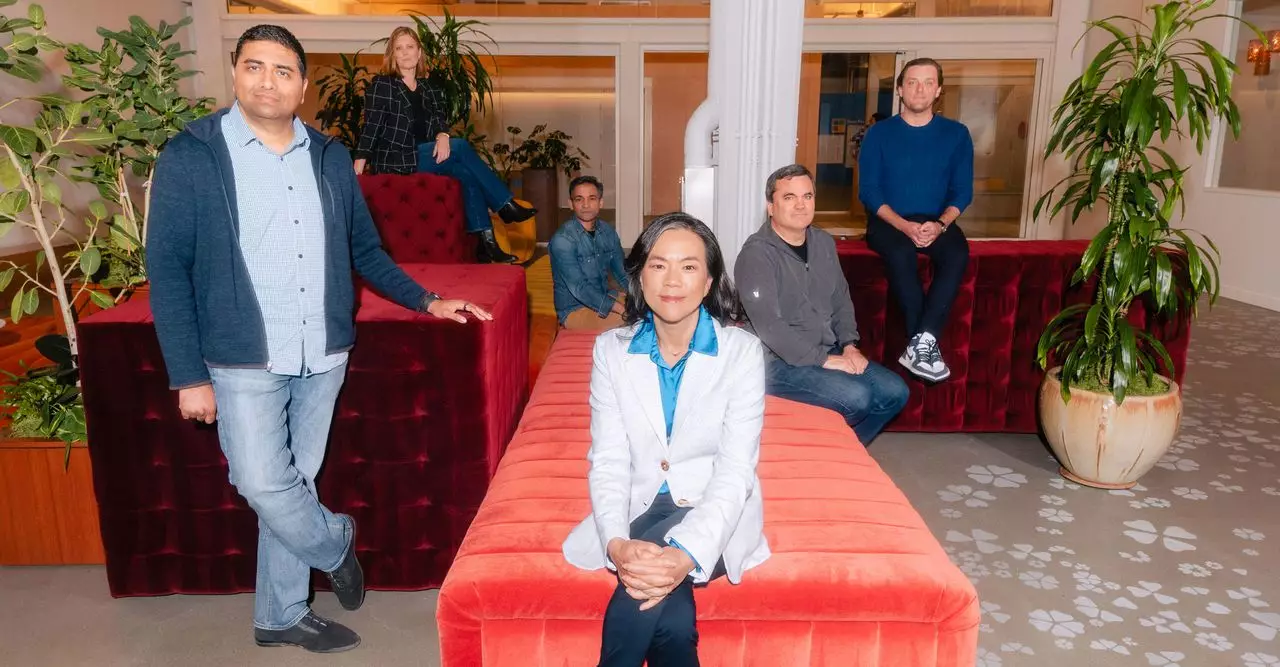In today’s rapidly evolving tech landscape, the ruthless pursuit of profit has become the cornerstone of virtually every innovative endeavor. For tech giant Google, the success of its artificial intelligence (AI) projects hinges not just on technological excellence, but on the ability to monetize these advancements. The irony lies in the fact that while consumers are enamored with the capabilities of AI, very few are eager to pay directly for these cutting-edge features. Instead, companies like Google have adopted a well-trodden model: offer a free service in exchange for user data, attention, and, ultimately, ad revenue.
The launch of the Gemini app illustrates this age-old strategy. However, it’s essential to acknowledge that not all AI systems possess the same staying power or user engagement. For instance, OpenAI’s ChatGPT has achieved staggering success, with over 600 million app installs compared to Google’s relatively humble 140 million. This gap raises a crucial question: is Google’s monetization strategy sufficient to keep pace with more user-friendly alternatives?
Moreover, Google’s entry into the AI chatbot space occurs amidst increasing competition from numerous formidable players such as Claude, Copilot, and Llama—each boasting impressive backing. As the AI industry has poured billions into the development of generative AI technologies, the challenge of generating a sustainable return on investment looms large. Despite assurances of accumulating efficiencies, companies continue to grapple with energy demands and unreliable outputs, casting doubt on the overall sustainability of the sector.
Antitrust Challenges and Internal Anxiety
The stakes rise even higher for Google, as antitrust judgments threaten to slice into its search ad revenue. JP Morgan analyst Doug Anmuth speculates that up to a quarter of Google’s advertising earnings could be at risk in the coming years. It’s a chilling reminder that while innovation is paramount, legal perils lurk ominously in the background. The urgency to maintain financial health has not gone unnoticed; reports reveal that overworked employees feel the intense pressure to perform, often clocking in 60-hour workweeks to keep pace with the competition.
This push for productivity is not without its toll. Anxiety permeates the company culture, with whispered fears of layoffs and burnout echoing through the halls. It’s a heated race, and for a company synonymous with technological prowess, the pressure to innovate without faltering can be a double-edged sword. Employees are acutely aware of the social and ethical complexities that accompany generative AI, from job displacement to privacy concerns, feeding an ongoing unease about the future workforce.
The Quest for Artificial General Intelligence (AGI)
At the heart of this race lies an ambitious goal: the development of artificial general intelligence (AGI). Pioneers like Demis Hassabis, the leader of Google’s DeepMind, envision systems capable of handling a multitude of tasks with human-like cognition. The trajectory toward AGI isn’t a simple one; it demands systems that can reason, plan, and learn autonomously—attributes that current AI models struggle to master.
OpenAI’s recent initiatives, such as the introduction of its Operator service, mark substantial advancements in this domain. This service can perform complex tasks, such as booking travel or filling forms, albeit with some caution and cost—its unreliability renders it a less-than-perfect solution for now. But Google’s countermeasures are already underway; by embedding more autonomous features in Gemini, they aim to enhance its capabilities beyond mere information retrieval to a more interactive and proactive assistant.
However, the path to improving these features is dotted with challenges. For instance, Google has experienced public missteps, such as a misguided advertisement that claimed gouda made up over half of the world’s cheese consumption. Such slips can undermine consumer trust, especially when users begin to rely on AI for crucial life decisions. As these technologies evolve from auxiliary tools to indispensable parts of daily life, the potential for error could prove catastrophic.
The Pursuit of Innovation Amidst Competitive Uncertainty
Still, Google remains committed to its vision under the leadership of Sundar Pichai. As executives forge ahead, navigating regulatory hurdles and fostering innovation, the imperative for success feels more pressing than ever. The fear of losing competitive ground fuels a culture that prioritizes speed—sometimes at the cost of accuracy or user satisfaction.
This race is not merely about technological advancement; it’s emblematic of a broader societal debate on how we will harness the power of AI responsibly. As implications expand beyond industry to affect everyday lives, the dialogue surrounding generative AI’s future will increasingly involve ethics, governance, and sustainability. The tech world stands at a precipice, where each decision could reshape the future of human-computer interaction for generations to come. And as the pressure to excel mounts, the question remains: will the benefits truly outweigh the costs?

